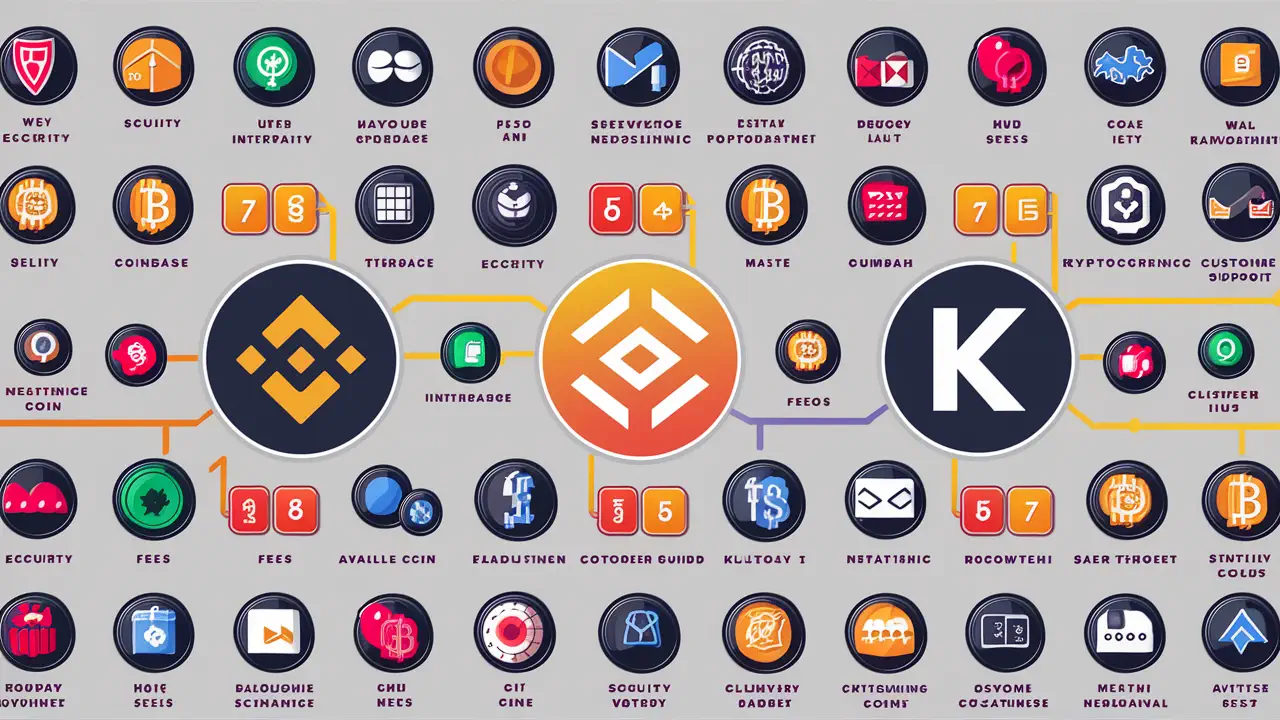
With the explosive growth of cryptocurrencies, choosing the right crypto exchange has become a critical decision for investors and traders. A good exchange can make the difference between a smooth trading experience and unnecessary risks. In this guide, we’ll walk you through the essential factors to consider when selecting a cryptocurrency exchange that best suits your needs.
1. Security Features
Security should be your top priority when choosing a crypto exchange. The digital nature of cryptocurrencies makes them a prime target for hackers, so ensuring that the exchange you choose has robust security protocols is essential. Look for exchanges that offer:
- Two-Factor Authentication (2FA): A security feature that adds an extra layer of protection to your account by requiring a second form of verification.
- Cold Storage: This refers to keeping the majority of the exchange’s assets offline, making them harder for hackers to access.
- Insurance: Some exchanges offer insurance for user funds, providing an extra layer of peace of mind.
Research the exchange’s past security record and how they’ve handled any breaches, as well as their response to vulnerabilities.
2. User Experience and Interface
A user-friendly interface is crucial, especially if you are new to cryptocurrency trading. Look for exchanges that provide an easy-to-navigate platform, with clear options for buying, selling, and transferring assets. Consider the following:
- Mobile and Desktop Compatibility: Whether you prefer to trade on your desktop or through a mobile app, the platform should provide an optimal experience on both.
- Ease of Use: Ensure the exchange’s design is intuitive, with helpful features like order book views, market charts, and simple deposit/withdrawal processes.
A good user interface can save you time and prevent mistakes, especially when executing fast trades.
3. Fees and Pricing Structure
Crypto exchanges typically charge fees for transactions, withdrawals, and sometimes even for deposits. Understanding the fee structure is crucial to avoid unnecessary expenses. Look for exchanges that provide clear and transparent fee information.
- Trading Fees: Some exchanges charge a flat fee per trade, while others use a tiered system based on your monthly trading volume.
- Withdrawal Fees: These can vary depending on the method of withdrawal and the cryptocurrency being withdrawn. Some exchanges charge a flat withdrawal fee, while others may charge a fee based on network congestion.
- Hidden Fees: Be wary of hidden fees like deposit fees, inactivity fees, or fees for using certain payment methods.
Compare fee structures across different exchanges to find one that aligns with your trading habits and expected volume.
4. Available Cryptocurrencies
Not all exchanges offer the same selection of cryptocurrencies. If you’re interested in trading specific altcoins, make sure the exchange supports them. Popular exchanges like Binance, Coinbase, and Kraken provide a wide variety of cryptocurrencies, while others may only offer a handful of the most popular coins, such as Bitcoin and Ethereum.
Look for exchanges that provide access to:
- Popular Cryptocurrencies: Ensure the exchange supports major coins like Bitcoin (BTC), Ethereum (ETH), and Litecoin (LTC).
- Altcoins: If you want to diversify into less well-known coins, check for exchanges with a broad range of altcoins.
- Stablecoins: If you prefer to avoid volatility, look for exchanges that allow you to trade stablecoins like USDT or USDC.
5. Liquidity and Trading Volume
Liquidity is essential for ensuring that you can buy and sell cryptocurrencies quickly at your desired price. Exchanges with higher liquidity tend to offer better prices and lower spreads. Always choose an exchange with a high trading volume, especially if you plan to trade large amounts of cryptocurrency.
- High Trading Volume: This indicates that many users are actively trading, meaning you’re more likely to find buyers and sellers when you need them.
- Market Depth: An exchange with good market depth has enough buy and sell orders at different price levels, making it easier to execute trades without large slippage.
Exchanges with high liquidity ensure better execution of trades and reduce the risk of price fluctuations during the buying and selling process.
6. Customer Support
Responsive and knowledgeable customer support is essential, especially if you’re new to crypto trading or encounter any issues. Look for exchanges that offer multiple ways to contact support, including:
- Live Chat: Instant support can be crucial when resolving urgent issues.
- Email Support: Many exchanges offer email support for non-urgent matters.
- Help Center/FAQ: A well-organized help center can provide answers to common questions and guide you through troubleshooting steps.
Research reviews of the exchange’s customer support to see how effective and efficient they are in resolving user issues.
7. Regulation and Compliance
The cryptocurrency market is still relatively unregulated in many regions, but some exchanges are taking proactive steps to comply with local laws. Make sure the exchange you choose adheres to relevant regulations to protect yourself from potential legal issues.
- KYC (Know Your Customer): Look for exchanges that require KYC procedures to verify the identity of users. This can help protect against fraud and money laundering.
- AML (Anti-Money Laundering): Compliance with AML policies ensures that the exchange is operating in a transparent and legal manner.
8. Reputation and Reviews
Before committing to an exchange, take the time to read reviews and assess its reputation within the crypto community. Look for feedback on factors like reliability, ease of use, and customer service. Check trusted sources like Reddit, Trustpilot, and other review platforms for real user experiences.
Conclusion
Choosing the right crypto exchange is a vital step in your cryptocurrency journey. By considering factors like security, user experience, fees, available cryptocurrencies, liquidity, customer support, and reputation, you can select an exchange that meets your needs and provides a safe and efficient trading environment. Always do your research, and make sure you are comfortable with the platform before making significant trades.